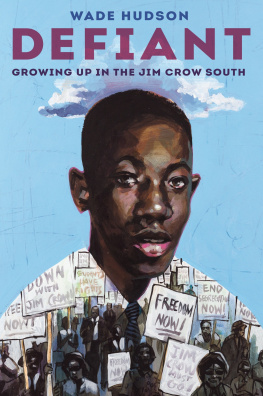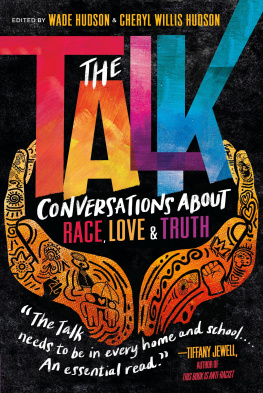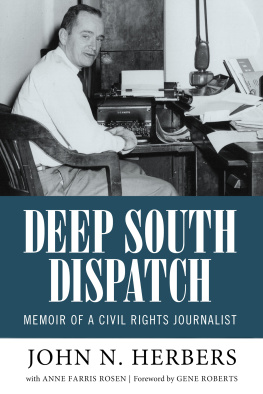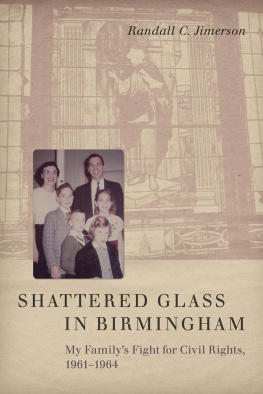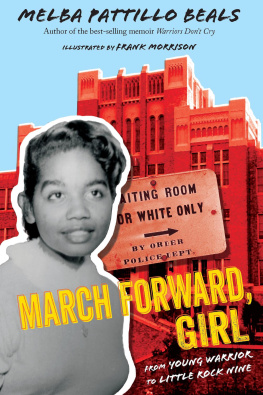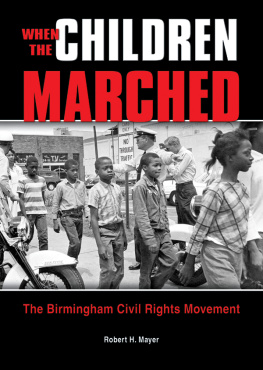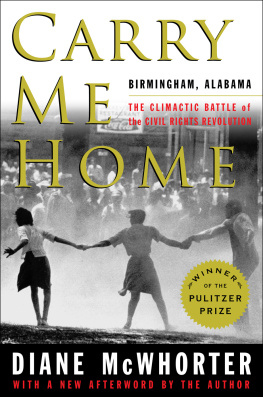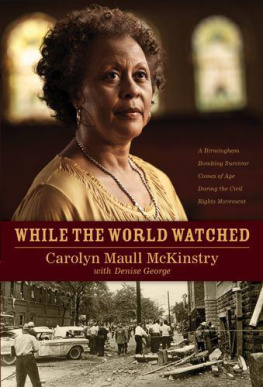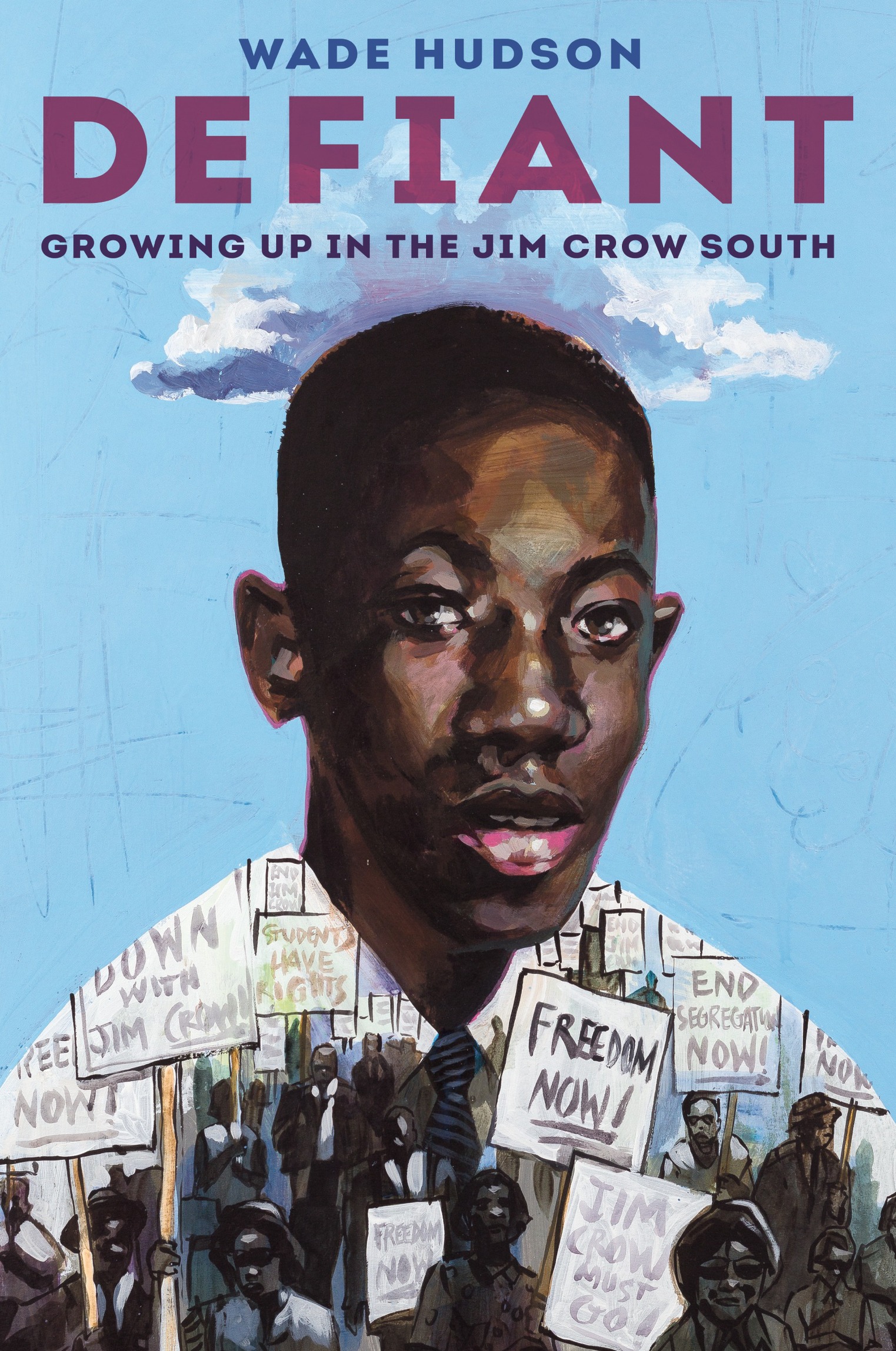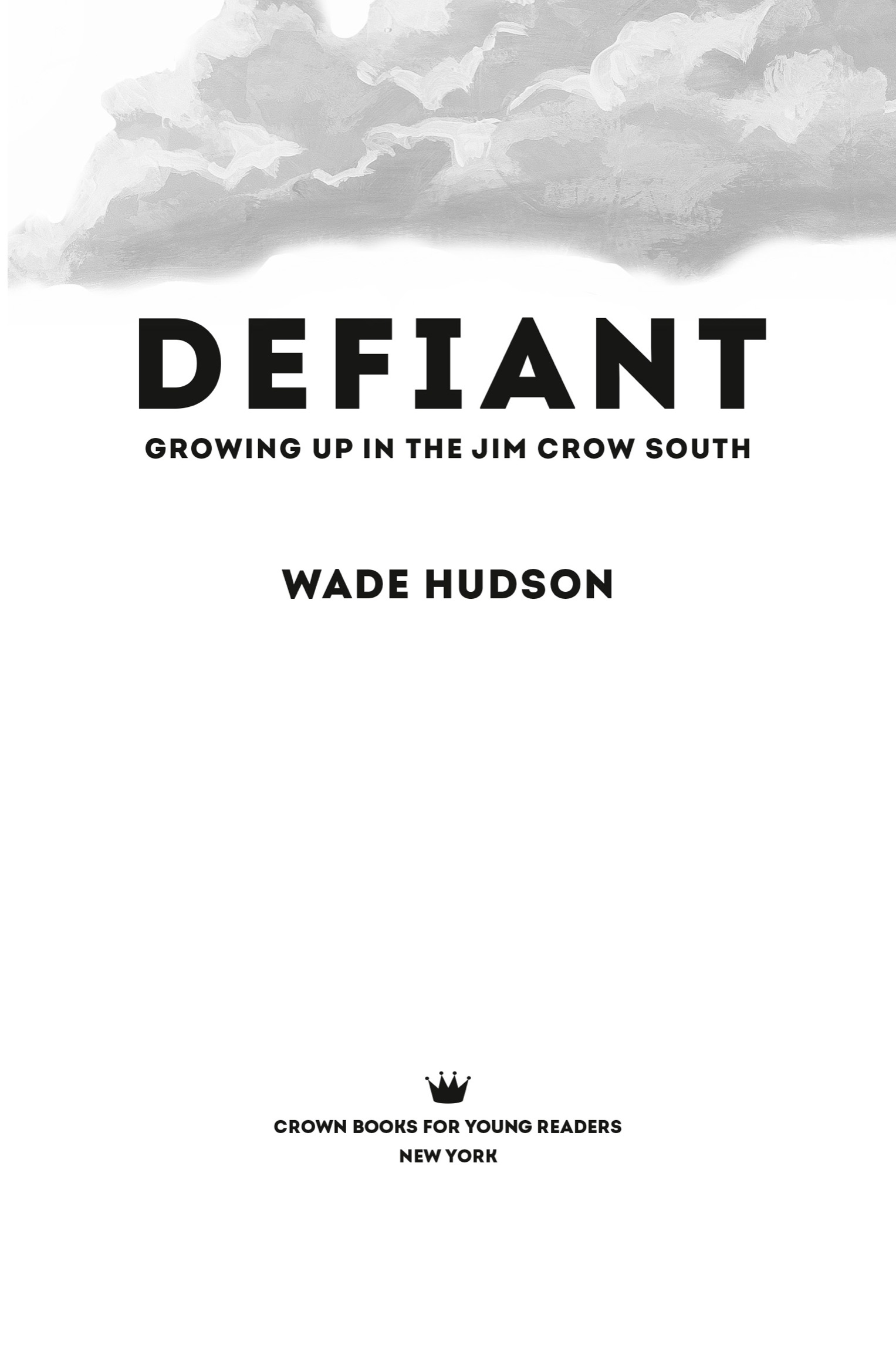Contents
Landmarks
Print Page List
To my wife, Cheryl; daughter, Katura; son, Stephan; the Hudson clan; and those who came before and helped to pave the way. I shall forever remember!
Text copyright 2021 by Wade Hudson
Cover art copyright 2021 by Charly Palmer
All rights reserved. Published in the United States by Crown Books for Young Readers, an imprint of Random House Childrens Books, a division of Penguin Random House LLC, New York.
Crown and the colophon are registered trademarks of Penguin Random House LLC.
Visit us on the Web! rhcbooks.com
Educators and librarians, for a variety of teaching tools, visit us at RHTeachersLibrarians.com
Library of Congress Cataloging-in-Publication Data
Names: Hudson, Wade, author.
Title: Defiant: growing up in the Jim Crow South / Wade Hudson.
Other titles: Growing up in the Jim Crow South
Description: New York: Crown Books for Young Readers, [2021] | Includes bibliographical references. | Audience: Ages 10+ | Audience: Grades 46 | Summary: The memoir of Wade Hudson, a Black man and Civil Rights activist who came of age in the 1960s at the height of the Civil Rights MovementProvided by publisher.
Identifiers: LCCN 2021021762 (print) | LCCN 2021021763 (ebook) | ISBN9780593126356 (hardcover) | ISBN9780593126363 (library binding) ebook ISBN9780593126370
Subjects: LCSH: Hudson, WadeJuvenile literature. | Civil rights workersLouisianaBiographyJuvenile literature. | African American boysLouisianaBiographyJuvenile literature. | African AmericansLouisianaSocial life and customs20th centuryJuvenile literature. | Civil rights movementsUnited StatesJuvenile literature. | Coming of ageJuvenile literature. | Mansfield (La.)BiographyJuvenile literature.
Classification: LCC F376.3.H83 A3 2021 (print) | LCC F376.3.H83 (ebook) | DDC 323.092 [B]dc23
Ebook ISBN9780593126370
Random House Childrens Books supports the First Amendment and celebrates the right to read.
Penguin Random House LLC supports copyright. Copyright fuels creativity, encourages diverse voices, promotes free speech, and creates a vibrant culture. Thank you for buying an authorized edition of this book and for complying with copyright laws by not reproducing, scanning, or distributing any part in any form without permission. You are supporting writers and allowing Penguin Random House to publish books for every reader.
ep_prh_5.8.0_c0_r0
Contents
DEFIANT DREAMS
Dream bold and brave.
Dream what goes beyond your reach,
And ask those tough questions
In search of a redefined future.
Do not dream the routine dreams.
Dreams that conform to what others accept,
That yield to what seeks to box you in,
That limit your reach and determine your destiny.
Dream dreams like those that created the pyramids,
That constructed Great Zimbabwe,
That put Phillis Wheatleys pen to paper,
That gave birth to Freedoms Journal.
Dreams that inspired Harriet to free the enslaved,
That built Tuskegee, Spelman, and Bethune-Cookman,
That impelled Garvey to declare Rise Up!
That stare reality in the eyes and do not blink.
Dream like Dr. Martin Luther King Jr.,
Like Sojourner Truth, Frederick Douglass, and Malcolm X,
Like those who started Black Lives Matter,
Who would not be held back.
Dream dreams that confront hatred and injustice,
That respond to those crying out in the darkness,
That plant you firmly on the community watchtower,
Ever vigilant, ever protective.
Dream what is not always easy to achieve,
What is sometimes feisty and defiant,
What seeks to plant the fertile seeds of change,
And yearns to help set people free.
Dream dreams like those bold ones that came before,
That were wrapped in love and baptized in courage,
That faced the mightiest challenges,
Determined to create a better world!
PREFACE
During school visits and other presentations, I often share stories about what it was like being a Black youngster in the 1950s and 1960s, during a pivotal time in our nations history. Many students know little about this period. Some have been introduced to Dr. Martin Luther King Jr.s I Have a Dream speech or Rosa Parkss refusal to give up her seat on a Montgomery, Alabama, bus. They are always intrigued to hear what it was like to be a kid during Jim Crow. I never, however, considered sharing these storiesmy storyin a book.
In the summer of 2018, at an American Library Association convention, my wife, Cheryl, and I were promoting We Rise, We Resist, We Raise Our Voices, an anthology we had edited. During the luncheon with members of the publishers staff, I shared stories about my experiences in the South. Someone suggested that I write a memoir. Others seconded the suggestion, repeating how important it would be to present my story to young readers.
For the first time, I gave writing my memoir serious consideration. Was I ready to dive into the past and shine a light on those experiences that shaped and molded me? Was I ready to relive the pain that remembering past incidents would surely kindle? Was I ready to spotlight my parents and my siblings in all their completeness? Was I ready to force onstage, for others to see, the people I knew and loved and who played significant roles in my growth? Was I ready to share myself?
When I was made a formal offer by Crown, I accepted. In doing so, I also accepted the challenge to write my story and introduce the world to my hometown, Mansfield, Louisiana, and its people and those who were a part of my coming-of-age journey.
Writing this memoir has been a provocative yet fulfilling project. I have learned so much more about the town in which I grew up. I have gained a better perspective of the Black people of Mansfield and the lives they lived. It is a perspective that reveals just how creative, resilient, dedicated, tough, and loving they were. To endure a system that was devised to dehumanize them and, in some instances, destroy them, they had to be.
After completing the manuscript for Defiant, I discovered a story about a group of brave Black folks in Mansfield who struggled to register to vote in the mid 1950s. Led by Thomas Louis White Sr., the group endured the usual demeaning epithets and threats Black people often faced, especially those who dared to speak up for their rights. The registrar, who was White, of course, used every means that the brutal, racist system afforded to stop them from registering. But Thomas White and his group were determined. Risking their livelihoods and their lives, they came back again and again. Finally, the registrar relented and allowed some in their group, including Thomas White, to register. They were among the first Blacks to vote in Mansfield. Perhaps the registrar didnt see several Blacks participating in the political process as a threat.
I never knew about this story when I was growing up. I dont recall anyone in the community talking about it. In fact, I didnt think there were any Black voters in Mansfield. I am sure there are other stories like this, of resistance and standing up for rights, that are hidden from history just as the Tulsa Race Massacre was hidden from history for so many decades.
I have learned about myself, my motivations, my inspirations, and in many ways, my raison dtre. I have learned how much I am a part of those people from Mansfield, Louisiana, and how much they are a part of me.

